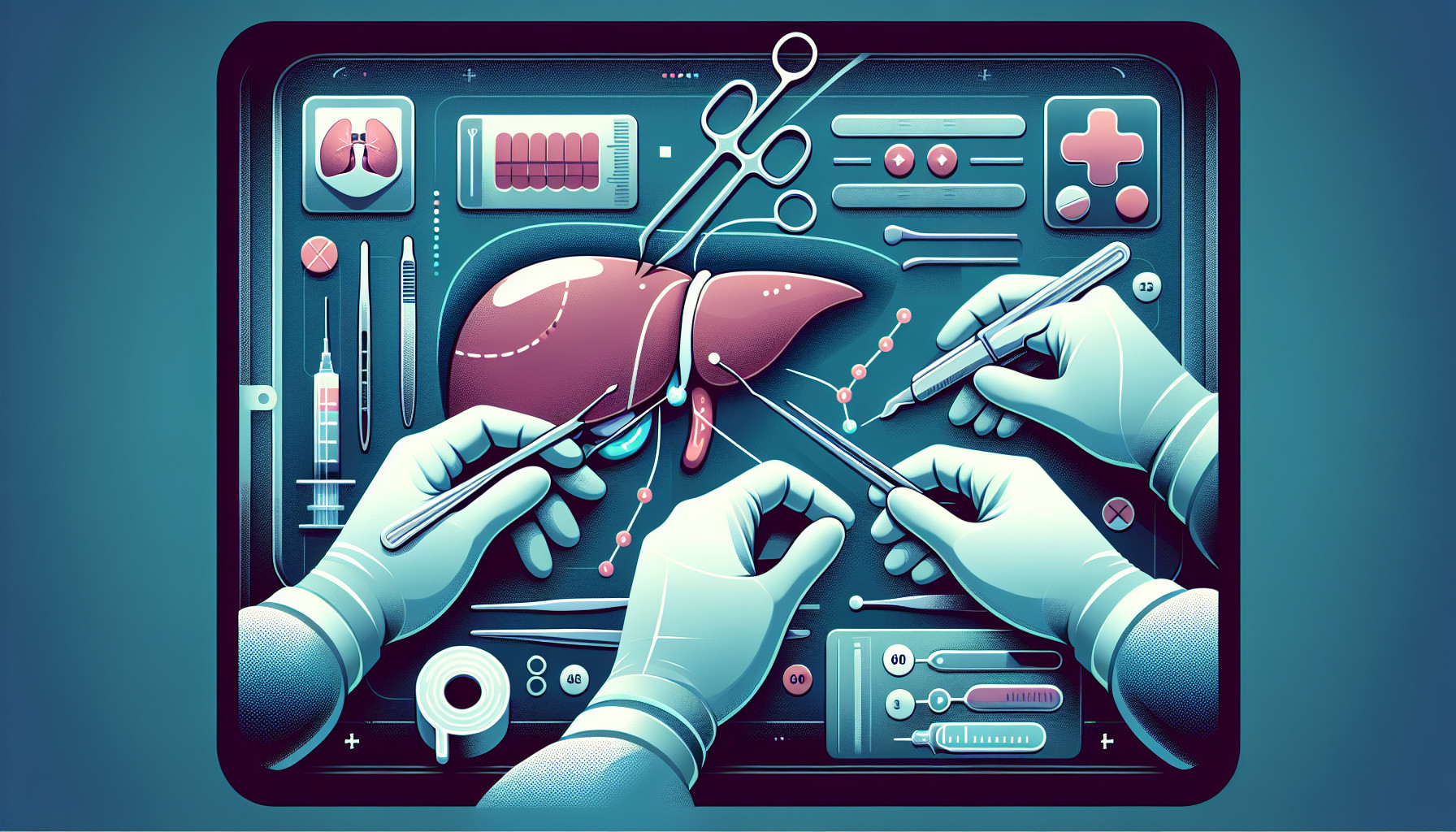Our Summary
Without having the full content of the research paper, it’s challenging to provide a detailed summary. However, based on the keywords provided, we can infer that the study is about ‘biopsies’ and ’needle complications’.
A biopsy is a medical procedure where a small sample of tissue is taken from the body to examine it more closely, often to diagnose diseases. The ’needle’ here likely refers to the tool used to collect the tissue sample. ‘Complications’ would imply the study is examining problems or adverse events that might occur during or after this procedure, such as infections, bleeding, or other medical issues.
FAQs
- What is a needle biopsy of the liver?
- What are some potential complications of a liver biopsy?
- What can a biopsy tell us about the health or disease status of the liver?
Doctor’s Tip
One helpful tip a doctor might give a patient about liver biopsy is to avoid taking any blood thinning medications or supplements for a certain period of time before the procedure, as they can increase the risk of bleeding. It is important to follow the doctor’s instructions carefully to ensure a safe and successful biopsy. Additionally, the patient may be advised to fast for a certain period of time before the procedure to help obtain more accurate results.
Suitable For
Liver biopsy is typically recommended for patients with the following conditions:
Liver disease: Patients with liver diseases such as hepatitis, cirrhosis, fatty liver disease, or autoimmune liver diseases may be recommended to undergo a liver biopsy to assess the extent of liver damage and determine the underlying cause of the disease.
Elevated liver enzymes: Patients with elevated liver enzymes on blood tests may be recommended to undergo a liver biopsy to determine the cause of the abnormal liver function tests.
Suspected liver cancer: Patients with suspected liver cancer may be recommended to undergo a liver biopsy to confirm the diagnosis and determine the type and stage of the cancer.
Monitoring treatment: Patients with liver diseases who are undergoing treatment may be recommended to undergo a liver biopsy to monitor the effectiveness of the treatment and assess the progression of the disease.
Transplant evaluation: Patients who are being considered for a liver transplant may be recommended to undergo a liver biopsy to assess the extent of liver damage and determine the suitability for transplantation.
It is important to note that liver biopsy is a invasive procedure and should be performed only when necessary and after careful consideration of the risks and benefits. It is important to discuss the need for a liver biopsy with a healthcare provider to determine if it is the most appropriate course of action for the individual patient.
Timeline
Before liver biopsy:
- The patient will meet with their healthcare provider to discuss the need for a liver biopsy and the risks and benefits of the procedure.
- The patient may undergo blood tests and imaging studies to assess the health of their liver before the biopsy.
- The patient may be instructed to avoid eating or drinking for a certain period of time before the procedure.
During liver biopsy:
- The patient will be asked to lie on their back on a table.
- The healthcare provider will numb the area where the biopsy needle will be inserted.
- The healthcare provider will insert a thin needle through the skin and into the liver to extract a small sample of tissue.
- The patient may feel pressure or discomfort during the procedure, but it should not be painful.
After liver biopsy:
- The patient will be monitored for a few hours to ensure there are no immediate complications, such as bleeding or infection.
- The patient may experience some pain or discomfort at the biopsy site for a few days.
- The patient may be advised to avoid strenuous activities for a period of time after the biopsy.
- The healthcare provider will review the biopsy results with the patient and discuss any further treatment or follow-up care that may be needed.
What to Ask Your Doctor
- What is the purpose of the liver biopsy?
- How will the procedure be performed?
- What are the potential risks and complications of a liver biopsy?
- How will I feel during and after the procedure?
- How long will it take to get the results of the biopsy?
- What will the results of the biopsy tell us about my liver health?
- What follow-up care will be needed after the biopsy?
- Are there any specific instructions I need to follow before or after the biopsy?
- How often will I need to have a liver biopsy in the future?
- Are there any alternative tests or procedures that could provide similar information about my liver health?
Reference
Authors: Lim TS, Kim JK. Journal: Clin Mol Hepatol. 2020 Jul;26(3):302-304. doi: 10.3350/cmh.2020.0081. Epub 2020 Jul 1. PMID: 32646204
